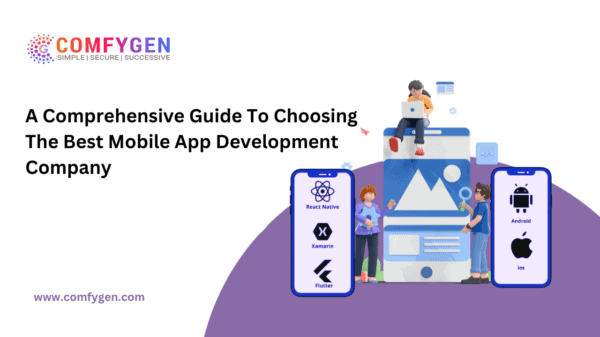“Is there an app for that?” may be an annoying question to some, but most smartphone users have learned to ask it. They expect your business – not matter how small or big it is – to have an app that enables them to interact with your services or products through their mobiles. Mobile application development has become mandatory for most businesses.
When you are considering developing an app, you realize that there are many players in the market: Apple, Android, BlackBerry and Windows being the most significant. Further research will reveal that more than nine out of ten of your customers are either using iOS devices or Android devices.
You have two options: you can either create separate mobile apps for all these (or the two major) platforms using different SDKs and development languages, or you could use cross platform technologies to write a single code that works for all the platforms. At the first glance, the idea of writing only one code seems enticing, but we need to dig deeper and understand all the implications of this choice. Let’s see how the choice or cross-platform or native mobile app development affects the development process and the quality of the app.
Coding and Code Maintenance
There is one huge advantage of using cross-platform technology – a single set of code can be used for all the platforms. On the other hand, coding native apps for particular platforms requires you to follow the specification of that particular operating system. Also, if you need to make any change or addition to the app, a single code makes your work a lot easier as a single change can be automatically implemented on all platforms.
But native apps have one major advantage: you can update your app with the latest platform-specific features when a new version of any OS is launched. The same may not be always possible with cross-platform technologies. At times there is another problem with cross-platform technologies: they do not support some features at all. You can get your hands only on a subset of the features and functionalities that native apps have.
Another trouble with cross-platform tools is the imperfections in code rendering – the tools translate the code written in scripting languages into the right code for different native codes. Many times, the translation is not perfect and this creates imperfection in the app itself.
Development Expertise
Cross-platform tools are a blessing for expert web developer who want to build their own app. Most of such tools utilize scripting languages like HTML, CSS and JavaScript, it becomes easier for web app developers to use their existing skills to create simple applications for smartphones.
But as most mobile app developers are experts in developing for particular platforms, it is extremely difficult for find professional developers who have enough knowledge of cross-platform technologies to create high-quality apps. Consequently, for enterprises and businesses that are expecting a lot from an app, cross-platform development may simply not be a viable option.
Cost of Development
If you want to develop an app that works with all the mobile platforms, but doesn’t cost too much, cross-platform is the only alternative. Building native apps for iOS, Android, BlackBerry and Windows Phone can burn a hole in your pocket. Cross-platforms solutions can let you create apps for 3-4 platforms in one shot.
However, if you simply want to target iOS and Android, the cost of development doesn’t remain such a big factor. The amount of tweaking that needs to be done to create a code that works with both the (very different) operating systems will drive the cost up. It may be easier to create separate native apps for both Android and iOS.
To Wrap it Up
Cross-platform technologies are constantly evolving, but they will always have to play catch up with native SDKs. But there are certain situations where it is a better idea to create cross-platform apps. You need to asks a few questions: What are the platform requirements? What features and functionalities does the app need to have? What kind of performance is expected from the apps? Can a cross-platform app overcome design constraints?
Once you are clear about all the requirements and purposes of the application, it becomes easier to find an answer to the question. If it is possible to build the kind of app your want using cross-platform technologies – with significant time and cost advantages – then a cross-platform app is surely a better option. Otherwise, it is better to stick to native mobile application development.
Albert Vang works for PLAVEB, a Mobile Website Design & Development Company located in Los Angeles. He also enjoys reading journals and love to write something really interesting in Mobile Apps Development update.

10 Comments
Leave a Reply
Cancel reply
Leave a Reply
This site uses Akismet to reduce spam. Learn how your comment data is processed.

























































































































































































myles
May 17, 2013 at 10:52 am
In my opinion cross platform would be good, as only one platform doesn’t target all the audience. Even it is about the quality audience you target. But going with the larger number would be beneficial in the longer run.
Albert Vang
May 20, 2013 at 9:08 am
You are right, both have pluses and minuses. Finally, it comes down to what is expected from the app.
Prakash
May 17, 2013 at 12:32 pm
Yes I also think that cross platform is the best. Thanks for sharing this info. BTW these are the new terms for me.
Albert Vang
May 20, 2013 at 9:09 am
Glad you found new information here 🙂 The way things change from month to month, we all need to keep learning!
JackThompson
May 17, 2013 at 1:44 pm
Cross plate forms tools are used to build their own apps. And mobile app tools it become easier for web app developer. Then all mobile users the the cross plate form is the best choice to users. Nice posting.
Jamie Bates
May 17, 2013 at 11:38 pm
It seems like more developers are going to have to be more cross platform oriented to appease a wider audience like @myles said. Just because most people are using ios or android doesn’t mean that it will always be that way. Things could change pretty quickly depending on new innovations.
Albert Vang
May 20, 2013 at 9:10 am
That’s what I feel, too. As cross-platform technologies get better and more mobile platforms find feet in the market, cross platform development will make even more sense.
Sudipto
May 18, 2013 at 12:12 pm
Hey Albert,
Nice post and Thanks for sharing this post with us. I learned lots of good things from this post and I think cross platform is best in comparison to other.
vedithaverma
May 20, 2013 at 7:02 am
Growth involving mobile apps have fallen as much as the great altitudes caused by rising of consumer demands.. completely new factors arrive each day which in turn takes on extremely important role throughout development involving mobile apps along with aids you to boost information about the particular creator.
Rohit
May 20, 2013 at 12:41 pm
nice article Albert,
developing the cross platform apps for a small enterprise increase the work burden in coding, maintaining and enhancing the app.., in my opinion the best way to get most out of the app is to try it for 2 major platforms and then after its stable release, try to create this apps for other platforms.. 🙂